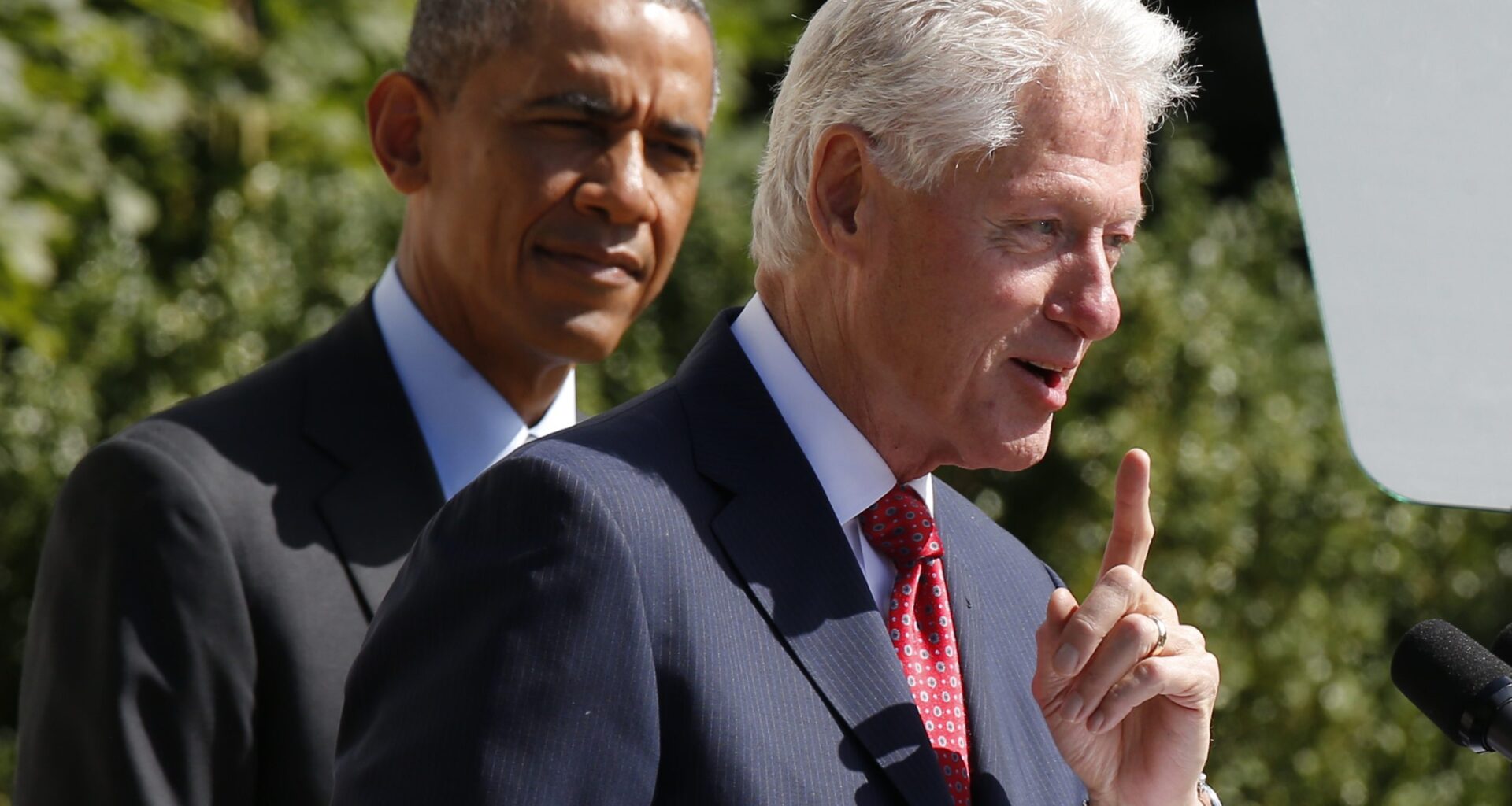Elon Musk’s still-hypothetical third party could become reality because, as I discussed yesterday, combining historically high debt levels with an economic downturn could stoke public frustration with both parties. We saw this in 1992 when independent billionaire Ross Perot exploited rising debt to garner nearly 20 percent of the presidential popular vote.
But it’s not a given that a large faction of voters will blame both parties for today’s rising debt. With nearly every Republican in federal office having voted for the red-ink-laden budget reconciliation bill, Democrats have a political opportunity to exploit.
Besides, the winning political party in the 1992 election was the Democratic Party.
Bill Clinton didn’t position himself as an austerity-minded candidate in that year’s primaries. On the contrary, he savaged the fiscal scold in the race, former Senator Paul Tsongas, for his “cold-blooded” economics. And he touted a “middle-class tax cut,” breaking from past Democratic nominees Walter Mondale (who pledged to raise taxes to balance the budget) and Michael Dukakis (who said tax increases to balance the budget would be a “last resort.”)
But in the general election campaign, feeling some heat from Perotistas and needing to woo Tsongas voters, Clinton nodded more toward deficit reduction. In his nomination acceptance address, delivered soon after Perot (temporarily) suspended his campaign, Clinton said:
[President George H. W. Bush] has raised taxes on the people driving pickup trucks and lowered taxes on the people riding in limousines. We can do better. He promised to balance the budget, but he hasn’t even tried. In fact, the budgets he has submitted to Congress nearly doubled the debt. Even worse, he wasted billions and reduced our investments in education and jobs. We can do better. So if you are sick and tired of a government that doesn’t work to create jobs, if you’re sick and tired of a tax system that’s stacked against you, if you’re sick and tired of exploding debt and reduced investments in our future, or if, like the great civil rights pioneer Fannie Lou Hamer, you’re just plain old sick and tired of being sick and tired, then join us.
Clinton’s rhetorical framework glossed over the tension between pursuing deficit reduction, lower middle-class taxes, and future-oriented investments. But once in office, Clinton prioritized deficit reduction with higher taxes on the wealthy (when Democrats ran Congress) and spending restraint (when Republicans ran Congress) while jettisoning the middle-class tax cut. While Clinton took initial political heat for the broken promise, a growing economy fueled by low Federal Reserve interest rates helped him get re-elected. He had a rare string of annual budget surpluses in his second term.
In a 2008 debate with his Republican opponent John McCain, Obama weaponized the higher debt accumulated by the incumbent George W. Bush:
When President Bush came into office, we had a budget surplus and the national debt was a little over $5 trillion. It has doubled over the last eight years. And we are now looking at a deficit of well over half a trillion dollars … And, frankly, Senator McCain voted for four out of five of President Bush’s budgets.
Obama promised to run a tighter ship but steered clear of specifics, and also stressed the need to immediately pump money into the economy to deal with the “economic crisis,” while also arguing “we’re not going to be able to go back to our profligate ways” after the crisis is over.
As president, Obama enacted an enormous economic stimulus package. But his signature legislative achievement, the Affordable Care Act, is a deficit reducer thanks to tax increases and cost efficiencies. Also, like Clinton, once Republicans claimed control of the House and the Great Recession subsided, Obama accepted more spending restraints. The annual deficit as a percent of GDP plummeted during his presidency from 9.8 percent in 2009 to 3.1 percent in 2016.
While both Clinton and Obama narrowed or eliminated annual budget deficits throughout their presidencies, neither was succeeded by a Democrat, raising the question of whether budget balancing had any political benefit.
During his one presidential term, Joe Biden was far more concerned about spending than saving. He enacted massive pandemic relief, vastly expanded the child tax credit (though the stingy Senator Joe Manchin blocked an effort to extend the costly expansion beyond one year), secured significant infrastructure investment, and implemented student loan forgiveness by executive order (though losses in court limited the total amount). Whether or not it’s fair to blame Biden’s spending for the period of high inflation on his watch, the high inflation was the main driver of Trump’s election victory and has given big spending a bad name.
And now it’s Trump piling on the debt with massive tax cuts skewed to the wealthy, paired with, but not offset by, huge cuts to health care, food aid, and clean energy. And any relief for working stiffs from tax cuts may be undercut by Trump’s tariffs. The issue will be challenging to ignore with debt at historically high levels relative to the economy. Democrats will be sorely tempted to whack Republicans as fiscally irresponsible, and rightfully so.
The electoral successes of Clinton and Obama remind us that it’s easier to level attacks on high debt in the campaign than produce a deficit reduction plan that squares with other party priorities and yields electoral victories. For example, Democrats will have no problem arguing for higher taxes on the wealthy. But how much will they want to commit additional tax revenue to deficit reduction when there is health coverage, food aid, and clean energy tax incentives to restore? What other big-ticket ideas will they fund, such as baby bonds or vocational and higher education support? Is it better to launch programs that deliver direct benefits, or indirectly improve the cost of living by reducing deficits and making it easier for the Federal Reserve to lower interest rates?
As the successful Clinton and Obama campaigns show, such tensions don’t need to be resolved until after Democrats regain power. But until then, the tension will percolate.
Related

